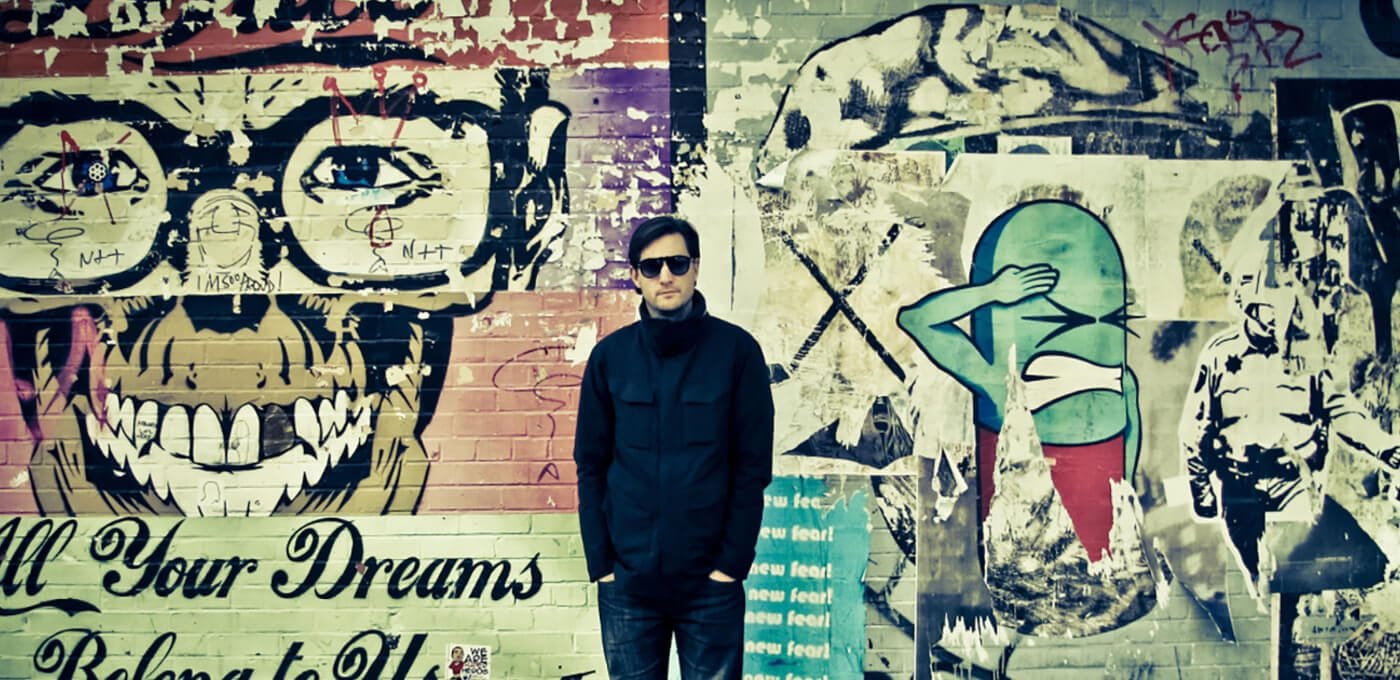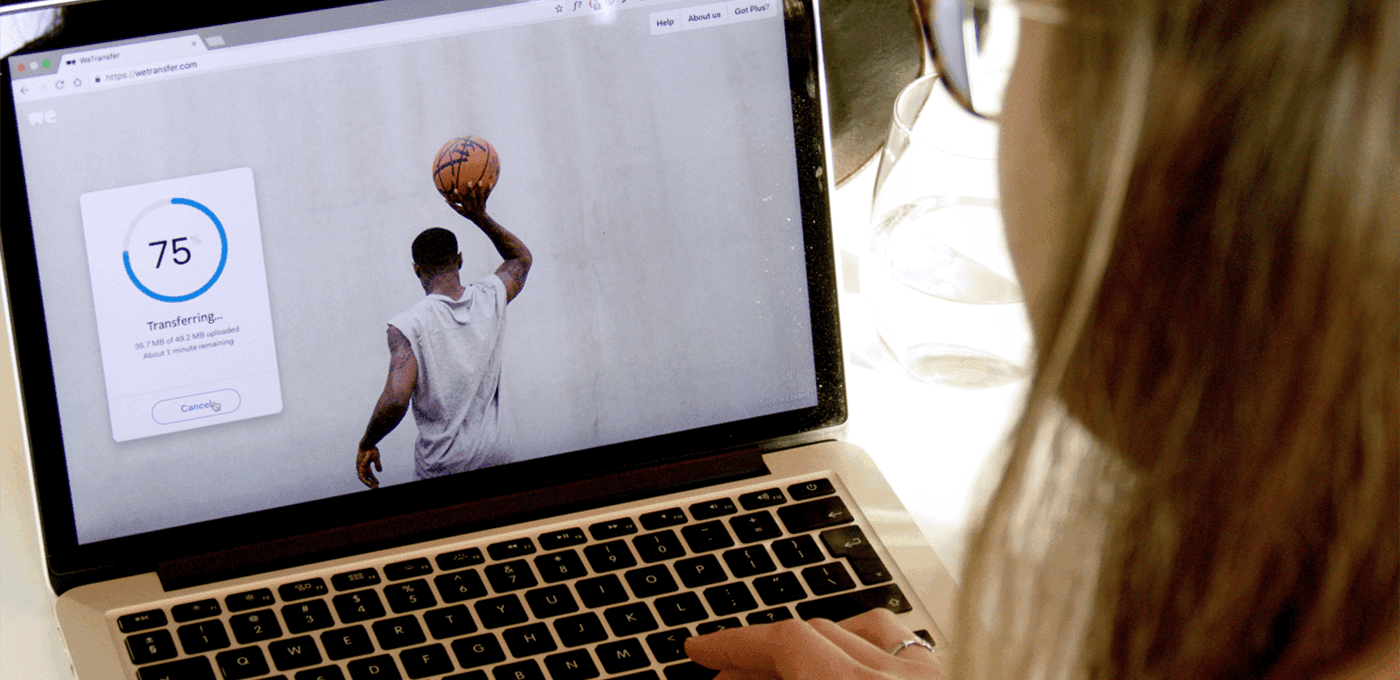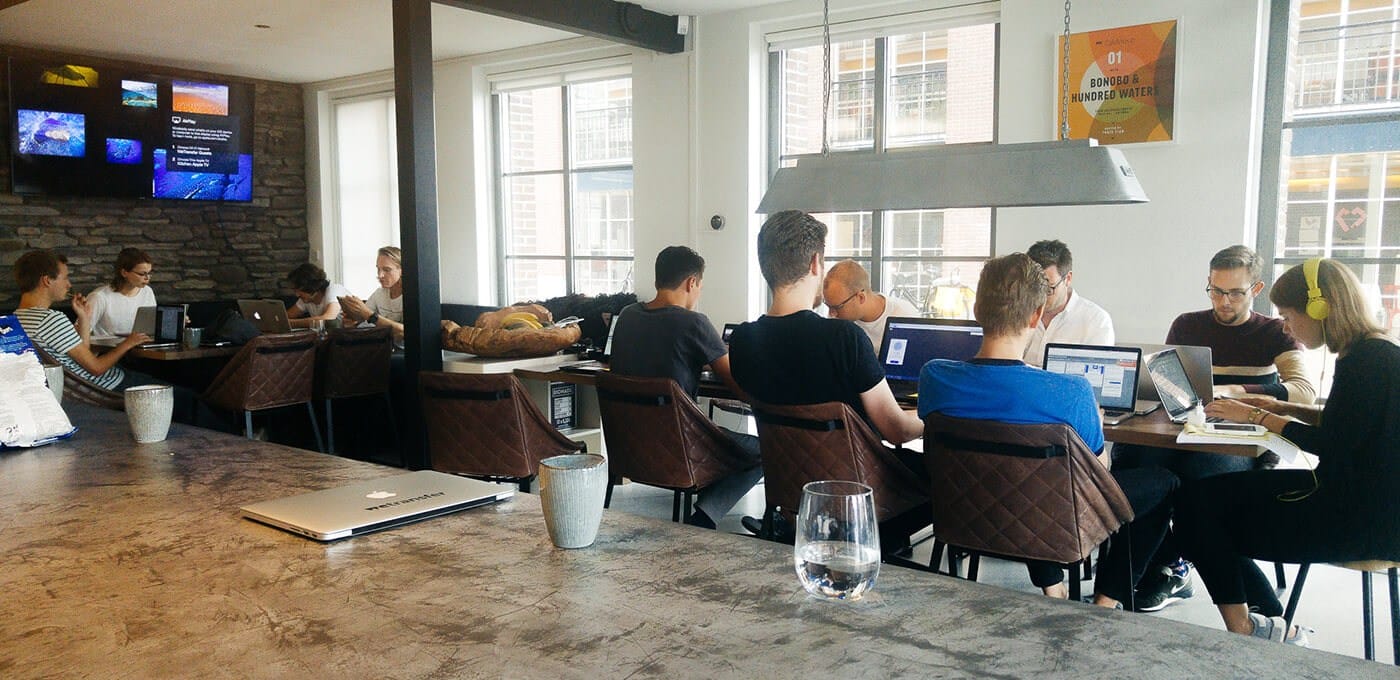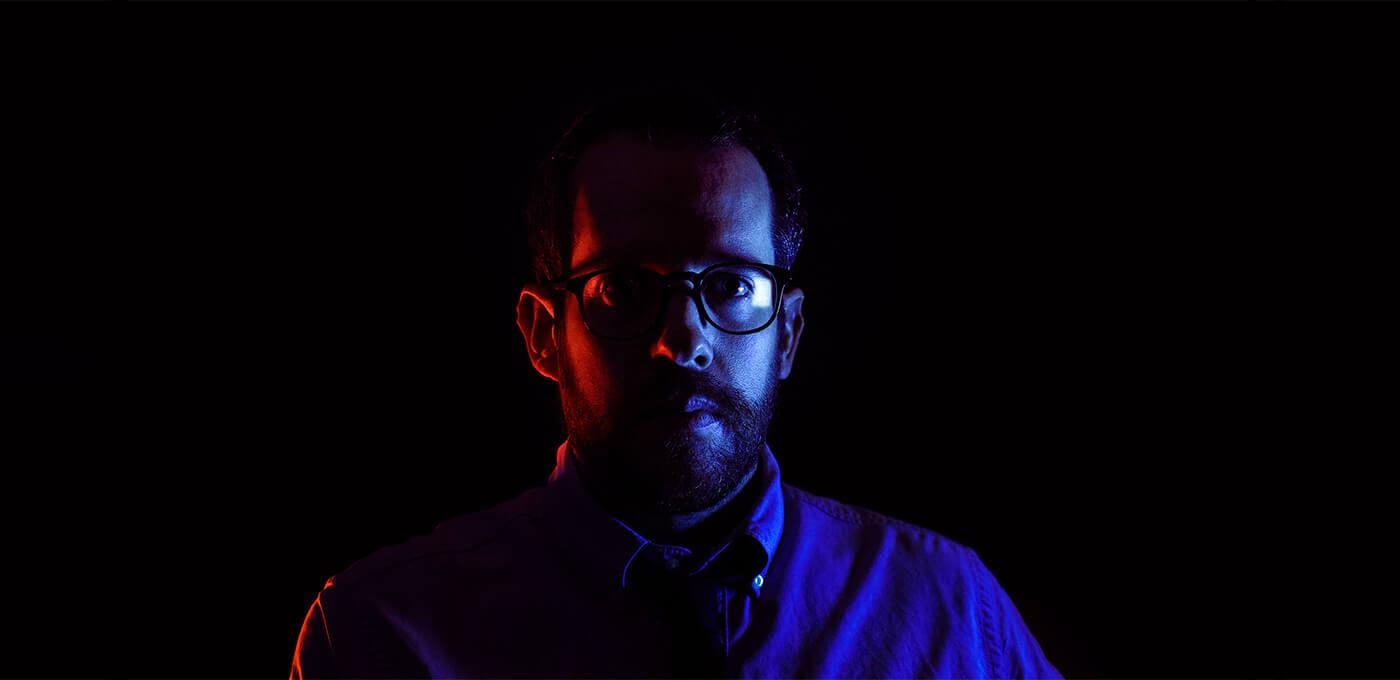Nalden devotes much of his energy to facilitating influential projects within the creative community.

Nalden -- the co-founder of file sharing service WeTransfer -- is not a creative director, artist or musician, yet many of the people who fill these roles owe him a great debt. That’s because Nalden devotes much of his energy to facilitating influential projects within the creative community, from the red dot award winning documentary series “Creative Class” to art projects across the globe.
WeTransfer started out as a side project to Nalden’s successful blog (nalden.net), with a combination of entrepreneurial drive and a desire to counter the slow and impractical nature of large-file sharing amongst people in the creative community. We Transfer’s user-friendly design and interface along with its free-to-use offering made it a virtual overnight success(10 years in the making), and today it boasts 100 million active monthly users sending over a billion files.
Nalden’s genuine enthusiasm for facilitating the creative process has led him down a path of authenticity that has resulted in a dedicated user base. Giving back to the creative community who use WeTransfer has always been part of Nalden’s business model and alongside its paid advertising, the company also lends its financial support to the community and gives away 30% of its ad-inventory to artists.
Nalden shares how he found a way to turn his side project into his main business and keep his passions at the core of everyday life. With the genuine desire to give back to the people it serves, and the “mission before money” approach, we will explore how authenticity led to We Transfer’s outstanding success.

99U: You started out your career as a blogger. How did that evolve into you creating WeTransfer?
I quit school at 19 when the blog I started at 13 years old gained traction and I was lucky enough to make a living out of it through wallpaper advertising. As a person I am very enthusiastic when I am excited about something and like to share it. On my blog I shared whatever I was interested in at that time. It started with music then went on to a much broader life and global view with art, travel, architecture and technology. The blogging was never about me: blogging was my way of publicly learning and failing. It made me more entrepreneurial and kept me curious and widened my horizon.
LIVE AT WE TRANSFER

Blogging allowed me to do several ‘projects’. Some became businesses (Present Plus / WeTransfer) and others went bankrupt (my music labelAppletree Records). WeTransfer was the side project that ultimately became my real business.
99U: How did WeTransfer come to life?
Because of my blog I met my co-founder Bas Beerens as he was an avid reader and liked my business model. We kept talking about building a service allowing people to share (big) files seamlessly. It all started from a place of frustration with service like You Send It where it was always a hassle to send large files. We wanted to make it as simple as possible to send big files. It really was that simple. What we started with was just a simple interface that even my dad could understand. You didn’t have to create an account and you could immediately start using it for free to send up to 2GB. From launching that, pretty naively, we grew rapidly and didn’t expect this growth at the beginning, so the first few years were all about catching up on the growth on a technology level, a team level, a financial level, a management level. Today WeTransfer is one of the simplest ways to send your files and 40 million people actively make use of it every month to send over a billion files. The growth has been insane!
99U: How did you overcome the challenges that that kind of growth brings?
It’s not something we envisioned 7 years ago as we started pretty naively. But we’ve always had the idea to do things in a human, or “better”, way. When we figured out we had reached a break even point, it allowed us to hire more skilled people. That’s when we launched WeTransfer Plus — our subscription model — which made us very profitable. People make the difference, so from there we went on a journey of bringing in the best talent and making the product better slowly over time.
99U: Tell us more about Present Plus and how running that business affected your role in We Transfer.
In the beginning WeTransfer was only costing us money so I had to make money and didn’t want to grow my blogs into a magazine, so I started a digital agency. I had a very personal, authentic voice on my blog and it helped me create an audience. Brands wanted to connect with me because of that audience and I learned how to work with brands like Nike and help them tell their stories with Present Plus. Last year that we decided to acquire the Present Plus team. They are fully responsible for the product design and brand identity for WeTransfer and better serve our customers. Integrating one side project (Present Plus) to fuel the other (WeTransfer) was an easy decision to make.

99U:At WeTransfer your wallpapers are a big part of your product, how do your control quality?
We have our own studio in-house that creates wallpaper ads for the brands so when we pitch advertising, we always try to help with the latest campaign assets that they have and make the advertisements for them to get the best results for advertising on WeTransfer. We think it’s an extra service that we have to do for our users: Make advertising look better. If it’s nice for the user, it’s better for the advertiser. Today advertising feels like people are shouting in your face. I just want someone to gently say, “Hey Nalden, look at this. You should check it out.”
99U: Give us some insight into the process of creating the new WeTransfer site.
It’s like we had to buy a new piece of land and re-build the whole foundation before building a new house on top of it. That’s basically what we’ve done. Every part of the new WeTransfer has been re-designed and re-built. We had to do that to make it more future proof and more scaleable, allowing us to iterate further on top of that new foundation and introduce new features faster. We also wanted the ability to introduce our eco-system into new devices. It took us 10 months from start to finish to launch the new WeTransfer. It was absolutely nuts in that time we went from 35 to 75 people in one year, especially after acquiring Present Plus. There have been a lot of interesting challenges.
99U: As a famously bootstrapped company, how has funding affected your path and why did you raise money while you were already profitable?
As founders you get to a point where the company is growing so fast, you start to get in the way. You think you know it all so you are limiting yourselves. Bas and I had no real management experience and it’s often your own limits that slow you down with a fast-growing company. We wanted to overcome this problem before it became a real issue. So we went on a search to find the best partners to have a seat at our table, bring expertise and experience to take the company further, and grow the team and, ultimately, the business. The fact that we were already profitable gave us the luxury to choose which partners we wanted to have at our table. That is a huge luxury.
WhenHCPE approached us, we had an instant connection - that was really important to us. In addition to supporting us with funding, they also offer us advice and expertise to help us achieve our goals. We use the investment to continue to innovate and develop our product and build the brand further, with our main focus on the U.S.

99U: How did you manage the culture change that comes with going from 35 people to 75 in a year?
It’s not easy, and never will be.There’s this quote of Alvin Toffler that goes, “The illiterate of the future are not those who cannot read or write, but they are those who cannot learn, un-learn and re-learn.” I think that’s spot on and challenge myself to live up to that quote.
That way of living comes with a lot of failure, but along the way we all learn in the journey. Give people purpose, clarity and empower them to go for it. Then it will all be fine, trust is key. I also underestimated how much fun managing could be. I love enabling and supporting great talent to shine!
99U: WeTransfer opened an office in LA recently, Why is a physical location important in today’s world of social media, video chats and file transfers?
Never underestimate the power of the dinner table. In the end, people make the difference so you want to work with people, look them in the eyes, have a laugh or two and make decisions. Collaborate. Do epic shit. Together. That’s why you need to have people on the ground. For sales, marketing and support it is crucial to have a team in the US also because of the time difference. We now offer round-the-clock support Why L.A? The creative scene in L.A. is booming and we love being right in the middle of where things are created. Supporting the arts has always been a key priority to us. To be able to form partnerships and discover talent it is great for us to have a home base in L.A. where many artists start out.
NEVER UNDERESTIMATE THE POWER OF THE DINNER TABLE. IN THE END, PEOPLE MAKE THE DIFFERENCE SO YOU WANT TO WORK WITH PEOPLE, LOOK THEM IN THE EYES, HAVE A LAUGH OR TWO AND MAKE DECISIONS. COLLABORATE. DO EPIC SHIT. TOGETHER.

99U: What are the goals with WeTransfer’s art project?
The goal is to resonate with our audience. Show that we are not only part of the content creation process, but also that we highlight the end result, whether online or offline. Apart from promoting the world's leading brands through beautiful full-screen advertising, we also support the creative community by giving away 30% of our ad-inventory to artists. That’s 15 up to 20 million dollar a year! We collaborated with Ace Hotels recently (http://www.juxtapoz.com/news/ace-hotel-x-wetransfer-billboard-project-in-los-angeles/) and Pioneer Works (http://pioneerworks.org/exhibitions/under-construction-new-positions-in-american-photography/)
I also really like the partnership we did with Mc Sweeney’s (https://wetransfer.com/docs/stories/clean/).
99U: As someone who is not what one would typically describe as a “creative”, how do you describe your own role within the creative community?
I don’t make shit, I make shit happen. That’s my credo right now, and it all comes down to my upbringing. Ultimately, I am the son of a conductor and a teacher, so it was always about the arts over money. Because of my parents, music has always been really important to me and so has sharing knowledge. Everything I do comes from the lessons they taught me.
I DON’T MAKE SHIT, I MAKE SHIT HAPPEN.

